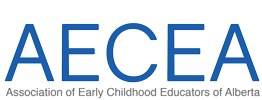FEDERAL ELECTION | MONDAY, APRIL 28, 2025
VOTER INFORMATION WWW.ELECTIONS.CA
As Canadians prepare to vote in the federal election on April 28, 2025, child care remains a pivotal issue. The major political parties have outlined distinct approaches to early learning and child care, reflecting their broader visions for family support and economic development. Here's a comparative overview of their positions:
| Party | Child Care Fee Policy | Expansion Plans | Workforce Support | Key Notes |
|---|---|---|---|---|
| Liberal | Maintain $10/day | Add 100,000 new spaces; include in federal buildings | Fair wages; pensions and benefits | Builds on existing program; integrates into economic and infrastructure plan. |
| Conservative | Honour existing agreements | Not specified | Nationally-recognized licenses | Critical of current program; promises more flexibility but no clear alternative yet. |
| NDP | Universal $10/day | Expand access and reduce waitlists | Fair wages; professional development | Prioritizes non-profit centres and ECE workforce support. |
| Green | Universal, publicly funded | Yes – part of broader social supports | Not specified | Child care integrated with livable income and family policy. |
| Canadian Future | Not specified | Not specified | Not specified | Evidence-based policy approach; no detailed child care platform to date. |
| People's | Opposes federal involvement | No federal role | Not specified | Prefers private-sector child care solutions; against public subsidies. |
*Accurate as of April 22, 2025.
AECEA Questions
On April 2, 2025, AECEA reached out to all parties asking for responses related to the following questions:
- How will your party ensure fair wages, benefits, and improved working conditions for early childhood educators?
- What initiatives would you include to professionalize the field, including funding for training and career advancement opportunities?
- What strategies will your party adopt to address the growing workforce shortage in ELCC and to attract and retain qualified educators?
- How will your party invest in system-level supports (e.g., data collection, workforce planning, professional development, research) that strengthen the ELCC sector and support ECEs in their practice?
- How will your party commit to maintaining and strengthening the CWELCC agreement, including ensuring stable long-term funding and working collaboratively with provinces and territories to enhance workforce supports and quality improvements?
Only two responses were received by the deadline of April 18:
Detailed Platform Notes
Detailed platform notes were gathered from political party platforms or public communications on April 22, 2025
Liberal Party (Leader: Mark Carney)
- Expansion of $10-a-Day Child Care: The Liberals plan to build upon the existing $10-a-day child care program by creating an additional 100,000 spaces. This expansion includes a requirement for new or renovated federal buildings to incorporate child care facilities.
- Integration with Economic Strategy: The child care initiative is part of a broader economic plan aimed at enhancing labour mobility and supporting working families, thereby contributing to a stronger national economy.
- Ensure ELCC providers have good wages: This is critical to keeping child care centres staffed. We will work with provinces and territories so that workers have predictable wage increases and investments in pensions and benefits programs.
Conservative Party (Leader: Pierre Poilievre)
- Honour Existing Agreements: The Conservative platform indicates that current existing deals with provinces and territories will be honoured but does not identify what will happen if an agreement is not in place. Alberta's current Canada-Wide Early Learning and Child Care agreement expires on March 31, 2026.
- Workforce Considerations: While the Conservative platform does not specifically address the early learning and child care workforce, including aspects like wages or professional development, it does indicate that they will work with the provinces and territories to create nationally-recognized licenses for early childhood educators.
New Democratic Party (Leader: Jagmeet Singh)
- Universal Child Care Commitment: The NDP would make access to affordable child care a right by law and expand universal, $10 per day daycare for all families by 2030.
- Space Creation: The NDP is proposing spending $10 billion over the next four years to create 500,000 new child-care spaces in Canada.
- Workforce Investment: The NDP emphasizes fair wages and professional development for early childhood educators, recognizing their crucial role in delivering quality child care.
Green Party (Leader: Jonathan Pednault & Elizabeth May)
- Universal Access: Implement a nationwide early learning and child care program accessible to all families, regardless of income.
- Affordability: Ensure that child care costs are manageable for families, aiming to reduce financial barriers to access.
- Integration with Social Supports: This child care initiative complements other proposed measures, such as a Guaranteed Livable Income and expanded paid family leave, to provide comprehensive support for families.
Canadian Future Party (Leader: Dominic Cardy)
- Policy Development: The Canadian Future Party (CFP), a centrist party emphasizing evidence-based policy, has not publicly released a detailed child care platform as of April 2025.
- Focus Areas: The CFP's stated priorities include housing, healthcare, immigration, and national defense. While child care is not explicitly mentioned, their commitment to evidence-based solutions suggests they may develop policies addressing this area in the future.
People's Party of Canada (Leader: Maxime Bernier)
- Opposition to Universal Child Care Subsidies: The People's Party of Canada (PPC) opposes federal subsidies for universal child care. They advocate for minimal government intervention, suggesting that child care should be managed by the private sector and families without federal involvement.
- Fiscal Responsibility: The PPC emphasizes reducing government spending and balancing the budget, indicating that programs like universal child care subsidies are inconsistent with their fiscal policies.
